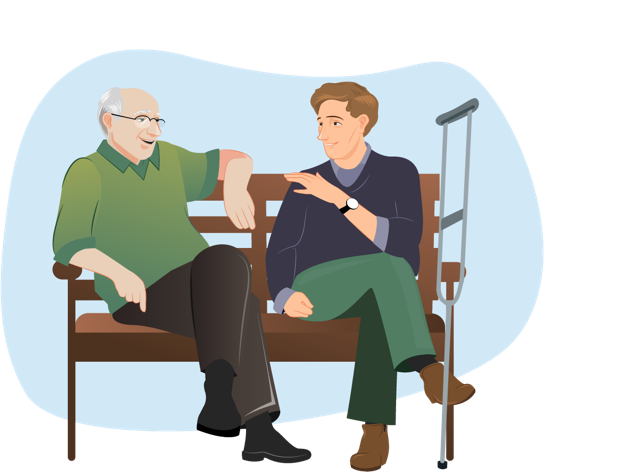
A Guide to Catheter Care



Speak to one of our experts
Our friendly experts are here to help from 9am to 7pm, 7 days a week.
How do you care for a catheter?
A catheter requires a level of care to ensure that it does not cause infection or discomfort.
- The catheter and the site of entry need to be kept clean. It is best to use ordinary soap and water to do this and avoid using antiseptics, talcum powder, and oil-based products which can damage the catheter.
- It is possible to take a shower or bath when you have a catheter. The drainage bag should be left in place and changed as required.
- If the catheter has been inserted through the lower stomach/abdominal wall, then the site of entry here will need to be kept clean. The skin around the site can be cleaned with sterile (or cooled boiled water) or saline (salt water).
- A good level of fluid intake will dilute the urine and help ease constipation which may cause problems with indwelling catheters. Fruit juices that are rich in Vitamin C and cranberry juice are believed to help reduce debris that adheres to the catheter and therefore may be beneficial to drink whilst a catheter is used.
- Try to avoid straining when opening bowels as a full bowel can press on the catheter and prevent drainage.
- Ensure that hands are washed and dried before and after emptying, connecting, and disconnecting drainage bags.
- All drainage bags should be kept below the bladder to promote drainage.
- Avoid any kinks or bends in the catheter tube.
- Both women and men can have a urinary catheter, with the same function for both. The main difference between the genders is usually in the length of the catheters. The length of a male urethra is around 18 to 20 cm. The length of a female urethra is around 3 to 4 cm. This means that a female catheter is much shorter than a male one. A male catheter is approximately 30-40 cm long and a female catheter between 7 and 20 cm long. Some women prefer to use male length catheters but males should not use the shorter length female catheters.
How often should a catheter be changed?
Changing the catheter itself
An indwelling catheter should be changed every 3 months, this is usually performed by a doctor or a nurse but in some cases, a carer can be taught to do this.
Emptying of the bag
If you have a drainage bag, then this should be emptied before it is full (usually around half to three-quarters full).
Changing of the catheter bag
Bags usually hold approximately 500ml and can be changed once or twice a week. At night, a larger, 2 litre bag may be required (four times the size of the day bag) and single-use night bags can be used to reduce the risk of infection. Valves should be used to drain the urine at regular intervals and prevent urine building up in the bladder.
When we talk of catheter care for carers, we are normally referring to the carer emptying the catheter bag or changing the bag.
How a live in carer can help you
Some people may be able to manage their own catheters, but others may require some support with cleaning, maintaining and changing their catheters. A live-in carer will have the skills to be able to help you with this. It can also be helpful to have a carer take away any of your concerns or worries about your catheter, therefore helping you to relax and experience less stress.
A live-in carer can help you with catheter care at home and therefore to carry on enjoying activities whilst you have a catheter. They can help you to manage any problems that might arise and help to plan for what you might need when outside the house. Many people find they can still lead a normal lifestyle with their catheter.
Having a live-in carer means that a relationship between you and the carer can develop into a trusting one, which can make it more comfortable to have them help you to manage any of the catheter care and maintenance duties. They will also learn about what is best for you when helping you with your catheter and they will be on hand to help you throughout the day and night.
How we can help
If you are wondering if live-in care can be the solution that you need to provide you or loved one with home catheter care, please speak to one of our friendly care team by:
- Calling 0118 449 2373
- Filling in our contact form
- Emailing hello@theliveincarecompany.co.uk
We will listen carefully to understand your situation and begin to build a picture of the type of care that you or a loved one needs and give you honest and careful advice no matter what your situation. We pay careful attention to practical considerations as well as your personal preferences.
When you are ready, a member of our dedicated and experienced team will select your perfect carer making it a stress-free and efficient process. We will then arrange for a telephone conference call between ourselves and the chosen carer so that you can ask any questions and begin to build a relationship.







